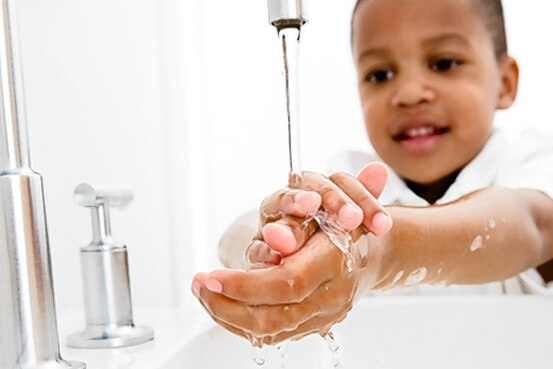August 19, 2021
Staying Safe: Back-to-School During Delta
Parents have a lot on their minds. The stresses of the past year have weighed on everyone, and it impacts children too. For parents, keeping kids safe is always priority #1. And as families gear up for back-to-school time, the pandemic has changed how parents – and kids – prepare for what’s typically an exciting time for everyone. To help, here are some tips to keep kids safe this school year.

For parents, keeping kids safe is always priority #1.
Vaccines
If your child is age 12 or older, they are eligible to receive a COVID-19 vaccine. The vaccines are proven to help prevent severe illness and can help reduce the risk of passing the virus to children who are not old enough to receive a vaccine.
Masks
CentraCare, together with the American Academy of Pediatrics (AAP), American Academy of Family Physicians (AAFP), Centers for Disease Control and Prevention (CDC) and Minnesota Department of Health (MDH), urges all students, teachers, staff, and visitors in K-12 school buildings to wear masks indoors regardless of vaccination status in order to protect those who cannot yet be vaccinated (under the age of 12) or who remain at higher risk because of immunocompromised status or other conditions.
Handwashing

Handwashing continues to be one of the best ways to protect yourself and your family from getting sick. Washing your hands during these key times can help you stay healthy:
- After using the bathroom
- Before, during and after preparing food
- Before and after eating food
- Before and after treating a cut or wound
- After blowing your nose, coughing or sneezing
Stress
The pandemic has been stressful for everyone, including children. It’s important to talk with your kids about how they’re feeling. These conversations are important to manage stress and support their overall mental health. Here are additional parental resources.
Rest
Sleep is vital for kids and the American Academy of Pediatrics recommends that children ages 3 to 5 need 10 to 13 hours of sleep per day, including naps. Children ages 6 to 12 need 9 to 12 hours of sleep. Teenagers need 8 to 10 hours of sleep. A good night’s sleep can help a child’s body stay healthy and ready to fight off infections.
If you have questions or concerns about your child, be sure to contact your family physician or pediatrician.


